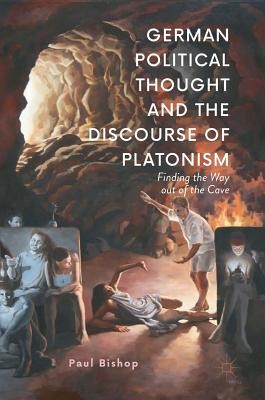
- We will send in 10–14 business days.
- Author: Paul Bishop
- Publisher: Palgrave Macmillan
- ISBN-10: 3030045099
- ISBN-13: 9783030045098
- Format: 14.8 x 21 x 2.4 cm, kieti viršeliai
- Language: English
- SAVE -10% with code: EXTRA
German Political Thought and the Discourse of Platonism (e-book) (used book) | bookbook.eu
Reviews
Description
Taking Plato's allegory of the cave as its starting-point, this book demonstrates how later European thinkers can be read as a reaction and a response to key aspects of this allegory and its discourse of enchainment and liberation. Focusing on key thinkers in the tradition of European (and specifically German) political thought including Kant, Marx, Hegel, Nietzsche, Heidegger, and the Frankfurt School, it relates them back to such foundational figures as Rousseau, Aristotle, and in particular Plato. All these thinkers are considered in relation to key passages from their major works, accompanied by an explanatory commentary which seeks to follow a conceptual and imagistic thread through the labyrinth of these complex, yet fascinating, texts. This book will appeal in particular to scholars of political theory, philosophy, and German language and culture.
EXTRA 10 % discount with code: EXTRA
The promotion ends in 21d.06:57:32
The discount code is valid when purchasing from 10 €. Discounts do not stack.
- Author: Paul Bishop
- Publisher: Palgrave Macmillan
- ISBN-10: 3030045099
- ISBN-13: 9783030045098
- Format: 14.8 x 21 x 2.4 cm, kieti viršeliai
- Language: English English
Taking Plato's allegory of the cave as its starting-point, this book demonstrates how later European thinkers can be read as a reaction and a response to key aspects of this allegory and its discourse of enchainment and liberation. Focusing on key thinkers in the tradition of European (and specifically German) political thought including Kant, Marx, Hegel, Nietzsche, Heidegger, and the Frankfurt School, it relates them back to such foundational figures as Rousseau, Aristotle, and in particular Plato. All these thinkers are considered in relation to key passages from their major works, accompanied by an explanatory commentary which seeks to follow a conceptual and imagistic thread through the labyrinth of these complex, yet fascinating, texts. This book will appeal in particular to scholars of political theory, philosophy, and German language and culture.


Reviews